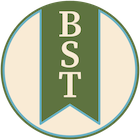When it comes to building a Bible study library, there is lots of advice out there. Some people will tell you to stick with the free stuff. Others will recommend spending hundreds or thousands of dollars on books or Bible software. Which way is right? Is there a wrong way to build a Bible study library?
To get the answer to these questions & more, continue reading. Today’s Bible study tip is all about building a Bible study library you can be proud of.
My Story
Over the years, I’ve amassed quite the Bible study library. I own multiple Bibles. My bookshelves are lined with books I’ve read and have yet to read. I’ve accumulated thousands of books across several Bible software platforms. It’s safe to say I’m not lacking in the tools department. Almost anything I need to understand a passage I have available at my fingertips.
Now, I don’t say this to impress you. All it means is that I’ve been blessed because of my career in Bible software, while also spending thousands of dollars over the years. But, truth be told, I don’t need most of what I own. When, it comes down to it, only a small percentage of my library is used on a regular basis. In my daily studies there are only a handful of resources I trust, even with thousands to choose from.
Lessons Learned in Building a Bible Study Library
With all the books I’ve amassed over the years, here are four things I’ve learned.
1. Large libraries are wasted
I used to think owning a massive theological library was something to be proud of. I was wrong. Unless you’re working in academia and writing research papers, the vast majority goes unused.
To illustrate, my Logos library contained over 4,000 titles at one point. Of those 4,000, I used about 50 of them on a regular basis. If you do the math, that’s a little over one percent. Instead of wasting time looking through random resources, I stuck to my preferred Bibles, commentaries, and the like. Chasing rabbit holes was my only motivation for venturing outside of my favorites.
In other words, I wasted a lot of money on books I thought I might one day use, but never did. Don’t waste money on stuff you think you might use; only buy what you know you’ll use.
Don’t waste money on Bible study tools you think you might use; only buy what you know you’ll use. Click To Tweet2. Content is duplicated
With access to thousands of study resources, one thing I noticed is there’s not a lot of new content. A lot of the more expensive commentaries spend so much time quoting from one another that you don’t really walk away with anything new. Sometimes you’ll even find the same entry across multiple dictionaries, albeit in abbreviated or slightly edited forms. And don’t get me started on the authors who write commentaries on the same book of the Bible for multiple series.
We often think we’ll get a wider array of thought with multiple resources, but that’s not always the case. What I’ve learned is I often end up reading the same content restated a myriad of ways. If you’re going to own multiple resources, say a commentary, I recommend purchasing across doctrinal and denominational lines if you want varying viewpoints.
3. BibleWorks got it right
When it comes to Bible software, people like to take jabs at BibleWorks because they don’t offer nearly as many resources as the other companies. Software companies like Accordance or Logos make thousands of resources available for purchase. BibleWorks, on the other hand, gives you everything you need to study the Bible, without all the stuff you’ll never use. And they only offer a handful of upgrades. Yes, there’s stuff in BibleWorks most will never use (like all the different Bible translations), but overall they don’t waste your time with stuff you don’t need.
Just because a book is available for your Bible software doesn’t mean you need it. Nor are you always better off buying the largest package you can get your hands on; it’s not always worth it. In most cases buying a la carte is best.
Just because a book is available for your Bible software doesn’t mean you need it. Click To Tweet4. The best tools are the ones you use
All in all, the biggest lesson I learned is this: the best tools are the ones you use. Much like the best Bible translation is the one you read, the best Bible tools are the ones you’re most familiar with and use on a regular basis. My go-to resources are just that because I use them and took the time to understand them. This is what makes them indispensable to my studies.
The tools I use are the ones I know will have the answer I’m looking for 99% of the time. I trust them to give me solid answers, even if I don’t always agree with their conclusions. Yet, I know them well enough to know what their strengths and weaknesses are. I can’t say that about the resources I only open on occasion.
If I had known these truths earlier, my Bible study library would look a lot different than it does today. But, if you can learn from my hard-earned & expensive lessons, then it was worth it.
The best Bible study tools are the ones you use & know well. Click To TweetNow, I want to give you some quick tips on how to build a Bible study library you can be proud of.
How to Build a Bible Study Library
When it comes to building a Bible study library, my best advice is this: keep it simple. You don’t need to spend thousands of dollars like I did. Instead, take time to look at the resources available to you and only add the ones you find valuable.
When I help people build their Bible study libraries, I always recommend starting with three items and building from there as needed. The three items are:
- Study Bible
- Full Bible commentary
- Bible Dictionary
If you start with these three items you will have the necessary foundation to study the Bible and apply it to your life. From there, consider investing in Bible software. Research and find the one that works best for you, and then buy only the minimum of what you’ll actually need & use. Don’t fall for the trick that having more books will help you study better.
All you need for a solid Bible study library is: a study Bible, full Bible commentary, and a Bible dictionary. The rest is gravy. Click To TweetFinally, if you’d like to know which resources I recommend, sign up for the Bible Study Tips newsletter and receive a free copy of my book The $100 Bible Study Library. In this book I show you how to get all the resources you need for $100 or less. And if you want to expand from there, check out the Bible Study Tips Recommended Resources page.
For further advice, check out Jeff Straub’s article on building a theological library.
Start Your Library Today
I don’t know what your Bible study library looks like; but, if you don’t have one, I encourage you to start building one today. Even if you don’t have a lot of money, you can get started without breaking the bank. You can even start for free like I did with tools like Olive Tree and websites like Blue Letter Bible.
Just know you don’t need to spend thousands of dollars to understand the Bible. As long as you have a few solid tools, you’ll have what you need to learn and apply God’s Word.
Weekly Study Prompts
This week study, meditate, and journal on the following passages:
- Monday – Genesis 48-49
- Tuesday – Genesis 50 – Exodus 1
- Wednesday – Exodus 2-3
- Thursday – Exodus 4-5
- Friday – Exodus 6-7
- Memory Verses: Genesis 50:20; Hebrews 11:24-26


